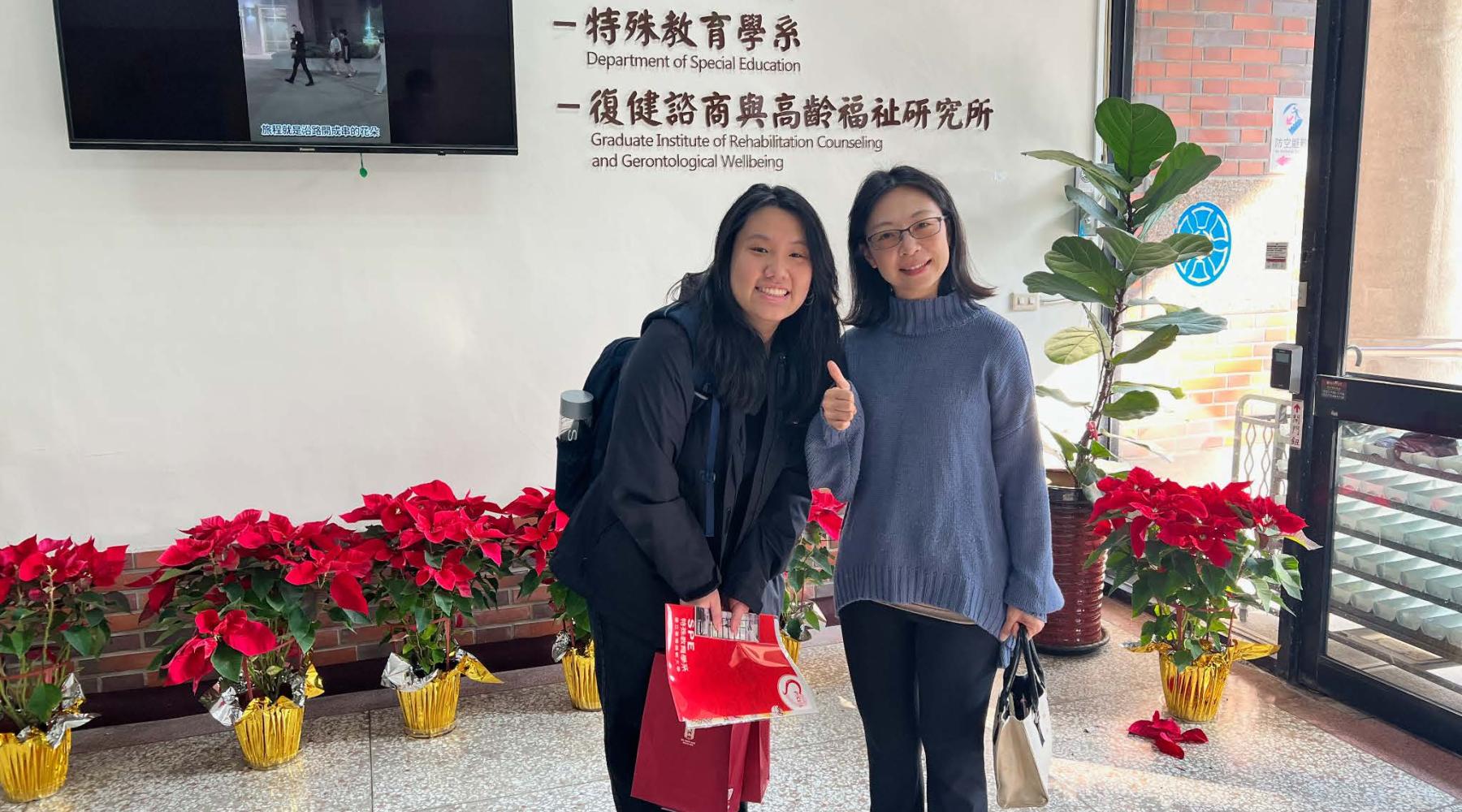
Kelly Chu researches disability laws in Taiwan
This winter, thanks to the ILR International Travel Grant, I traveled to Taiwan to conduct research for my thesis on the interplay between public policy and cultural perception in shaping disability laws. My project examines how historical events, societal attitudes, and cultural narratives influence the development and implementation of disability-related legislation. By interviewing leading academics and advocates, I gained valuable insights into how seemingly objective laws often carry ideological stories woven within them, reflecting deeper cultural and societal values.
My research took me across Taiwan, from Taipei to Kaohsiung, where I met with experts who have dedicated their careers to advancing disability rights. In Taipei, I interviewed a professor from the Institute of Health & Welfare Policy at National Yang Ming Chiao Tung University. She shared her expertise on the historical and cultural factors that have shaped Taiwan’s disability policies. One key takeaway was the role of Confucian values in creating a familistic welfare system, where families are legally obligated to care for disabled members. While this system provides a safety net, it also perpetuates the perception of disability as a family burden rather than a societal responsibility.
At National Taiwan Normal University, I met with another professor whose work focuses on special education and rehabilitation counseling. We discussed the challenges of implementing inclusive education policies and the need for greater resources and training for teachers. She highlighted the tension between Taiwan’s progressive laws and the persistent societal stigma that often undermines their effectiveness. For example, while the inclusion of students with disabilities in mainstream education has increased access, many schools lack the resources to provide adequate support.
In Kaohsiung, I had the privilege of interviewing another professor who was a key advocate in helping to draft Taiwan’s early disability laws. Her insights into the grassroots movements that drove policy changes were invaluable. She spoke about the importance of self-advocacy and the need for disabled individuals to have a voice in policy discussions. She also shared his vision for the future, emphasizing the need for greater investment in community-based services and independent living options.
One of the most striking findings from my research is how Taiwan’s disability laws have evolved from a charity-based model, rooted in pity and religious benevolence, to a more rights-oriented approach influenced by global movements like the Convention on the Rights of Persons with Disabilities (CRPD). However, cultural traditions, such as Confucian values emphasizing family responsibility, continue to shape policy implementation. For example, under Taiwanese law, families are legally obligated to care for disabled members, and abandoning this responsibility can result in penalties. While this system has provided a safety net for many, it has also reinforced the perception of disability as a family burden rather than a societal responsibility.
Another key finding is the gap between policy and implementation. While Taiwan has made significant strides in aligning its laws with international standards, challenges remain in practice. For instance, the employment quota system, which requires companies to hire a certain percentage of disabled workers, has been criticized for perpetuating a charity model rather than promoting equal opportunities. Similarly, the inclusion of students with disabilities in mainstream education has increased access, but many schools lack the resources and training to provide adequate support.
Grassroots movements, especially from parents and self-advocates, have played a crucial role in shaping Taiwan’s disability laws. These efforts have led to important reforms, but shifting societal attitudes remains a significant challenge. Many advocates I spoke with emphasized the need for greater public education and awareness to combat stigma and promote a rights-based approach to disability.
This research trip was an eye-opening experience that deepened my understanding of the complexities of disability policy and the importance of cultural context in shaping legislation. I was struck by the resilience and determination of the advocates and academics I met, who are working tirelessly to create a more inclusive society.
I am deeply grateful to the ILR International Travel Grant Program for making this experience possible. The support I received allowed me to engage with experts, access primary documents, and observe the lived experiences of individuals with disabilities in Taiwan. This trip has reinforced my commitment to advocating for inclusive policies and has provided valuable insights that I look forward to sharing with the ILR community.